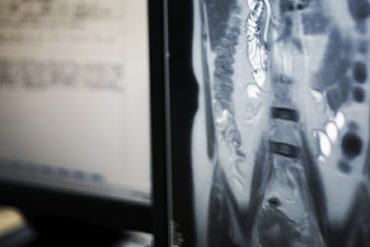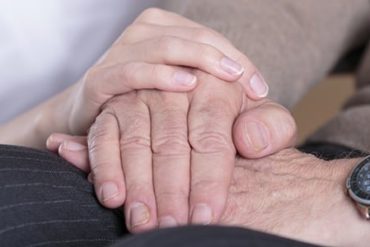Osteoporosis is a condition that decreases bone density, increasing the risk of breaking a bone. An estimated three million people have osteoporosis in the UK, and it is very common as you age, being responsible for most broken bones in elderly people.
Symptoms
It is not uncommon to have osteoporosis for a number of years without knowing. Diagnosis of the condition usually occurs after a bone is fractured in a situation that usually wouldn’t result in a fractured bone. Occasional symptoms of osteoporosis include backache and a bent spine, which results in a loss of height and a stooped posture.
Causes
The density of your bones increases up until your late twenties. After this, bone density slowly decreases, increasing the risk of a fracture. Risk factors of osteoporosis include:
- Gender: women are more likely to develop osteoporosis than men
- Age: 70 per cent of people over the age of 80 years are affected
- Excessive alcohol consumption
- Race: European people are more likely to develop osteoporosis
Diet is also thought to play a major role in the development of osteoporosis. Malnutrition, and more specifically vitamin D, calcium and vitamin C deficiencies, have been shown to decrease bone mineral density.
Treatment
The main goal when treating osteoporosis is fracture prevention. It is important to stay active by doing some form of low-to-medium impact exercise, as this stops the bones from further deterioration.
Practicing healthy eating, with a focus on increasing calcium intake from dairy products, eating fruits and vegetables in abundance for their vitamin and dietary element content, and increasing protein consumption through lean meats and fish, will all help to keep bone density.
Prevention
Regular, high impact exercise is essential to bone density. 150 minutes of exercise should be completed every week. This can be in the form of fast walking, running, weight lifting dancing, skipping, kickboxing, and sports.
Although swimming is an excellent form of exercise and has various health benefits, due to its low-impact nature, it is not helpful for developing strong bones.
Eat a nutritious diet which is high in unsaturated fats (from fish, nuts and seeds), with a moderate protein consumption (from lean meats, fish, dairy, peas and beans), a lower consumption of carbohydrates (ensuring carbs that are consumed are from whole grains), and fruit and veg in abundance.







